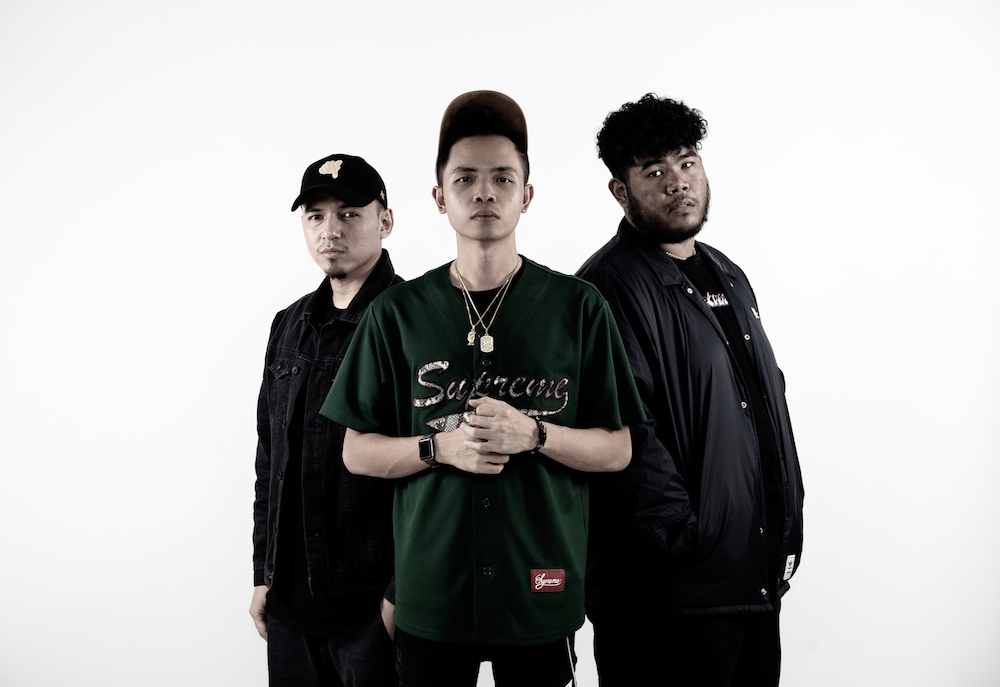FEBRUARY 2 — Malay pop artists have long attempted to incorporate the Kelantanese musical art form of dikir barat into their songs.
Perhaps the most well-known is ethnic pop songstress Noraniza Idris’ Dikir Puteri, the evergreen hit from her award-winning 1998 album Masyur.
The song was thrust into the limelight again two decades later when two contestants in the Thai version of reality show contest The Voice performed the song in 2018, complete with a southern Thai dikir barat troupe.
Another memorable hit was by rock band Kapilla, who released their Dikir Rambong — with a Thai verse — just a year after Noraniza.
Academic Halim Yazid, who has four albums of dikir barat music, released the cult favourite Tupai in 2001. Meanwhile, heavy metal band Amuk would later release Dikir Timur in 2007.

Last year, duo Him Rintingmas and Poyie Gasi released a minor viral rap track called Kelate Bumi Bertuah. It sounded cringey and a bit forced, which was partly why Rauzan Rahman’s Ada Kau Kisah released late last year caught my attention.
Born in Singapore, Rauzan made his name as a hip-hop producer and rapper after an earlier career as a child actor. In recent years, he seems to have turned his attention on the minority Malay community in the republic.
Ever since his introspective Motivasi Dalam Lagu released in 2018, he has linked up with kindred spirits across the Causeway, from underground hip-hop artistes to mainstream movers SukaSucre Creatives whose co-founder Imran Ajmain also hails from Singapore.
Ada Kau Kisah seems to be the culmination of this attempt to bridge traditional Malay culture with hip-hop.
“It’s not a new idea, but it is important for the youths to not forget our traditions,” Rauzan told Malay Mail in an email interview.
The song opens with a dikir intro by Kelana Purba, a Singapore communal dikir barat troupe with a rotating roster, with roots going back to 1990. By his own admission, Rauzan is a fan of the troupe after first seeing them in a dikir competition roughly in 2002.
“Bersenjata kekata,” declares the troupe to start the song, which is part of its motto which ends with “berperisai seni.” Literally: “our weapons are words, our shield the arts.”
Despite featuring a Singaporean troupe, the song pays tribute to dikir barat’s birthplace with a verse in the Kelantanese dialect by Issey, the nickname of Suria FM radio announcer and former dikir barat singer Fazlisham Mat Hussin.
The dikir elements in this track are mostly subtle. The chorus employs the same gang singalong delivery of dikir troupes, while the main beat features melodies driven by synth that will remind listeners of serunai and canang instruments punctuated by gong hits.
Compared to the novelty of the beat, the lyrics are pretty simple: Rauzan calling on his people to step up their game, while collaborator Kmy Kmo talks about the importance of leaving a legacy. Both united in urging listeners that it is never worth it to care about what others think about your struggles.
Talking about this song won’t be complete without mentioning both featured artists, not just Kmy, but also R&B singer Izhar.
Some see Kmy as a protégé of local hip-hop legend Malique, the reclusive one half of Too Phat.
He caused a stir with the savage track Gong Nekara with his frequent partner Luca Sickta in 2018. The track was lauded for featuring slick wordplay in Malay, but considered scandalous because of an acrostic deemed as a diss towards another scene legend, Altimet; such beef is rare in a scene as small as Malaysia.
The song also infused ethnic music elements, which the duo replicated in last year’s sequel Zuhud featuring “sifu” M. Nasir. “He is well known for his Nusantara vibe,” Rauzan said of his decision to rope in Kmy.
But the show-stealing appearance in Ada Kau Kisah has got to be Izhar, who sang the bridge over Rauzan asking “Bila masa kau nak in the zone?” (“When are you going to get in the zone?”)
Compared to the others, Izhar may be the least known, but that may downplay his potential and voice, which recalls the likes of The Weeknd and Khalid.
“I was introduced to Izhar by rapper B-Heart ... I got the opportunity to work with both of them on a track called Itu Pasti.
“From there I think we automatically clicked and became good friends,” Rauzan said.
Last year, Izhar and producer partner Izz4d released the R&B EP Trap Emosi Bersepadu, a soul-baring and trippy ride befitting the night-time boat ride depicted on its cover.
Replay it on your Spotify. It may not be long until he finds that crossover success.
Talking about dikir barat and the Malay music scene, it is only right to give an honourable mention to Demo Kawe EP by local punk rock band No Good. (The EP title itself is a Kelantanese pun, “demo” roughly means “them” in the dialect. “Kawe” is “me” or “us”).
The trio is a supergroup, featuring post-punk band Killeur Calculateur’s guitarist Smek on guitar and vocals, and its drummer Ali Johan. Rounding up the band is Wan Azry, the bassist of on-hiatus math rock shining star Dirgahayu.
The EP, too, starts with a dikir barat snippet into before launching into roaring guitars on intro track Sek Kito Jange Pecoh, a rallying cry calling for unity and solidarity among the Kelantanese diaspora.
The energy and raucousness never subsides in the EP, with Smek delivering his lines in caustic Kelantanese, raw and gritty.
It may not be too late to learn the dialect to rock along.
* This is the personal opinion of the columnist.






















